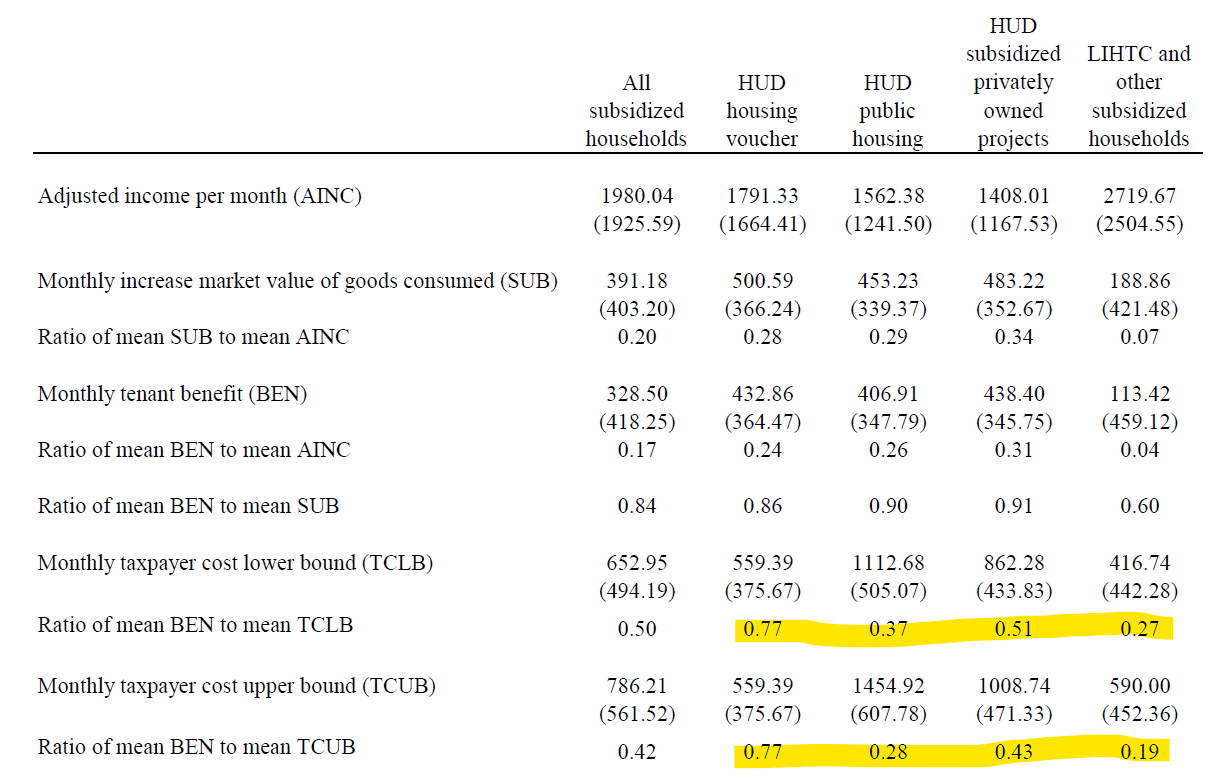Physical Address
304 North Cardinal St.
Dorchester Center, MA 02124
Physical Address
304 North Cardinal St.
Dorchester Center, MA 02124

Via The Excellent Kevin Lewis, here’s a paper that tries – at least – to estimate the benefit-cost ratio of the most common types of social housing in the U.S.
Edgar Olsen and Dirk Early estimate that Housing Choice Vouchers – aka Section 8 – have a respectable benefit to taxpayer cost of 77%. Other forms of social housing, including LIHTC, perform much worse, delivering value to recipients of between 19% and 51% of the cost to the taxpayer.

But how good are the estimates? Olsen and Early do their own work on the benefit side, using 2013 American Housing Survey data. It’s not the last word on the matter, but it’s clear, recent, and replicable.
On the cost side, however, Olsen and Early rely on other researchers’ findings. The best evidence comes from papers published in 1980 (for public housing), 1981 (for HUD-subsidized privately owned projects), and 2002 (GAO). The only recent evidence is on vouchers, from Olsen’s own work (2019).
This shows, frankly, a shocking incuriosity from government functionaries and academics, the majority of whom favor greater spending on social housing. As Olsen and Early note, most of the increase in U.S. social housing comes from LIHTC spending — which the meager available evidence finds to be the very least effective way of providing social housing.
Congress won’t have the courage to shift LIHTC spending to vouchers. But it should, at minimum, require a rigorous update of the Government Accountability Office’s 2002 study.